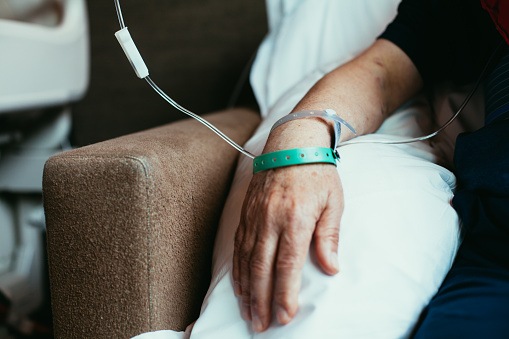
Patients with light-chain (AL) amyloidosis with low disease burden who are eligible for autologous hematopoietic cell transplantation (AHCT) may benefit from receiving bortezomib-based induction therapy, according to a new study.
Induction therapy is a recommended treatment for patients with AL amyloidosis prior to AHCT if the patient has a high disease burden or more than 10% bone marrow plasma cells. The role of induction therapy before AHCT in patients with AL amyloidosis with low disease burden has not been previously studied.
A team of researchers from the Nanjing University School of Medicine in China, enrolled 227 patients with low disease burden AL amyloidosis in a study to examine outcomes associated with bortezomib-based induction therapy prior to AHCT. Of the 227 patients, 124 received bortezomib-based induction, 35 received other chemotherapeutic induction, and 68 did not receive induction. Differences of efficacy and prognosis were assessed between the three groups.
Hematologic overall response rates were 92% for the bortezomib group, 67% for the chemotherapy group, and 75% for the non-induction group, with complete response rates of 50%, 25%, and 20%, respectively. The renal response rates of the bortezomib, chemotherapy, and non-induction groups were 64%, 46%, and 47%, respectively, and cardiac response rates were 74%, 45%, and 40%, respectively.
Median overall survival (OS) was not met at 44 months. The five-year estimated OS of the three groups was 81% for bortezomib, 57% for chemotherapy, and 67% for non-induction. Median progression-free survival (PFS) was 83 months for all patient groups. The five-year estimated PFS rates were 61% for bortezomib, 38% for chemotherapy, and 49% for non-induction.
Upon multivariate analysis, a baseline difference between involved and uninvolved free light chains of more than 50 mg/L was associated with worse survival. Overall, induction with bortezomib was associated with better survival.
This study was published in Amyloid.







 © 2025 Mashup Media, LLC, a Formedics Property. All Rights Reserved.
© 2025 Mashup Media, LLC, a Formedics Property. All Rights Reserved.